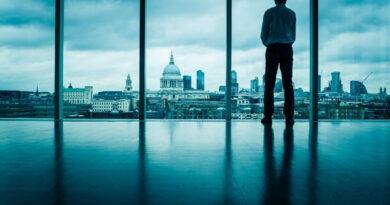A Malayali’s Tongue-in-Cheek Take On The Climate
A Malayali Keralite’s Tongue-in-Cheek Take on The Climate, it is a Changing.
I would think that climate has always been a changing.
I remember that long ago, as a young boy, about 7 or 8 years old – and I am quite into my dotage now, so you will know how long ago that was – my grandmother was always complaining that the climate was a changing. She was then in her dotage too and would step out on to the courtyard in front of our house and look up the sky and exclaim for all who loved to hear – and I would always hear her, she was my pet grandmother and I was her pet grandchild – that the climate was not what it used to be, certainly not what it used to be in her childhood, that it was getting so hot now, when it should be raining, that the monsoons should have started a week ago, and look there was not a sky in the cloud. Oops, oops. She would correct herself, there is not a cloud in the sky.
The following year, her compliant would be, “look the climate is all a changing, it is raining way too much these days, it has been raining now for a week nonstop. Really things are not what they used to be.”
But, is that not what life is all about? Things are never the same, are they? They keep a changing. We change, habits change, technology changes, the world changes, climates change. I tend to believe that climate has always changed. And will always change. We can’t pin down climate and say, don’t change.
Climate changes have always affected people. It has destroyed cities but built new ones. Muziris in the central coast of Kerala was once a flourishing centre of world trade, exporting spices to Europe and Rome and importing gold coins from there. Until one year, it rained and rained and rained and rained some more, and rained again, until a flood in the Periyar river washed away Muziris, never to be seen again, only heard.
But that same flood opened up an outlet to the sea some few miles to the south of Muziris and the city of today’s Cochin or Kochi took shape. Cochin became the new trading centre for the flourishing spice trade. That flood also opened up the backwaters of Kerala, which is today a rousing tourist attraction and known across the world.
As those reverend nuns ask in The Sound of Music, ‘how do you solve a problem like climate change? And as they with unerring clairvoyance, asked themselves some eighty years ago, ‘how do you catch a cloud and pin it down?’
We really can’t, can we? Climate change is a fact of life. We cannot stop that change. We cannot catch climate and pin it down to what it was yesterday or today.
The world has passed through ice ages and some warm climes. And the world will continue to do so. We, homo sapiens adapt to such changes. We cannot prevent nature from having its way and prevent climate from a changing, can we?
Kerala is particularly sensitive to climate change, as it has a very long and fragile coastline. I am from Kochi – once upon a time, Cochin; see even the names of places change – and they say that the city may go under water if the temperatures and therefore the sea continues to rise. It also has 44 rivers and quite a number of streams, rivulets, backwaters and a long long sea coast.
The state is then having to pay heavily for its fragility. We cannot build any new building from 50 to 100 metres of water bodies. Decision makers in Delhi – where the only water body you can see is the dried-up Jamuna – and many of whom have no idea what the sea looks like – for landlocked as Indraprastha is, many there have never ever seen the sea – have passed laws to that effect. So no buildings near the sea or river or rivulets, or streams or tanks, or lakes or any other sort of water bodies. And Kerala is full of these water bodies.
Thus, most buildings we build here could technically be violative of the law. So that law of the land can come in one day and decree that these buildings are to be broken down.
Kerala also has a very fragile environmentally sensitive areas up in the hills and mountains of the western ghats. We in Kerala also cannot build anything in the hills and mountains that we have here aplenty, because these are or could be part of the environmentally sensitive areas of the western ghats. Various Committees and Reports of some very important environmentalists have seen to that.
And then we have a very high percentage of our land declared as Forests. And now we are told that there has to be a Buffer Zone around our forest, all of one kilometer in depth were there can be no construction.
Effectively then to protect the climate of the world, it seems that it is this little state of Kerala that would have to pay the price. It is no matter that over half a millennium ago, seven barren islands were given to some prince in Europe as dowry, and they built up a huge huge city there, all near water bodies. Thus, Bombay and later Mumbai was built up close to the sea and near and across water bodies and grew up to be the commercial capital of the country. But that is okay. If you trampled upon the environment 500 years ago, you are excused.
Similarly the banks of the Jamuna was trampled upon to become Indraprastha and then Delhi say some 5000 years ago. But that trampling of the environment does not count, because it was done 5 millennia ago. But if you build something near the sea in Kerala, or up in our mountains or within the one-kilometer Buffer Zone around forests here, then you are to be punished.
Kerala is being punished for being the last to join the bandwagon. With a population that burgeoned a couple of decades ago, such expansion of human habitat near by water bodies, forests, and up the hills and mountains was inevitable. But Kerala has to pay the price for the being the last to do so.
If only we had trampled upon the environment some it 500 years ago as Bombay did; or some 5000 years ago, as Delhi did, it would have been okay. But no, we cannot do so now, not now. For the climate is a changing, and Kerala has to be a paying for it.





One must learn from history. If Kerela must remain ‘God’s own land’, then we cannot afford to repeat the mistake others made.
Unfortunately Kerala is now having to pay for the original sins of others.
Nicely written Uncle!
Loved the way you correlated with dear Ammamma’s memories ❤️.
And the reference to one of my all time favorite movies – Sound of Music…kudos to the clairvoyance of the nuns back then.
Quite some knowledge too- am embarrassed to admit that I had no idea about the history of good old Cochin aka Kochi.
Looking forward to more such Tongue-in-Cheek writeups from you:).